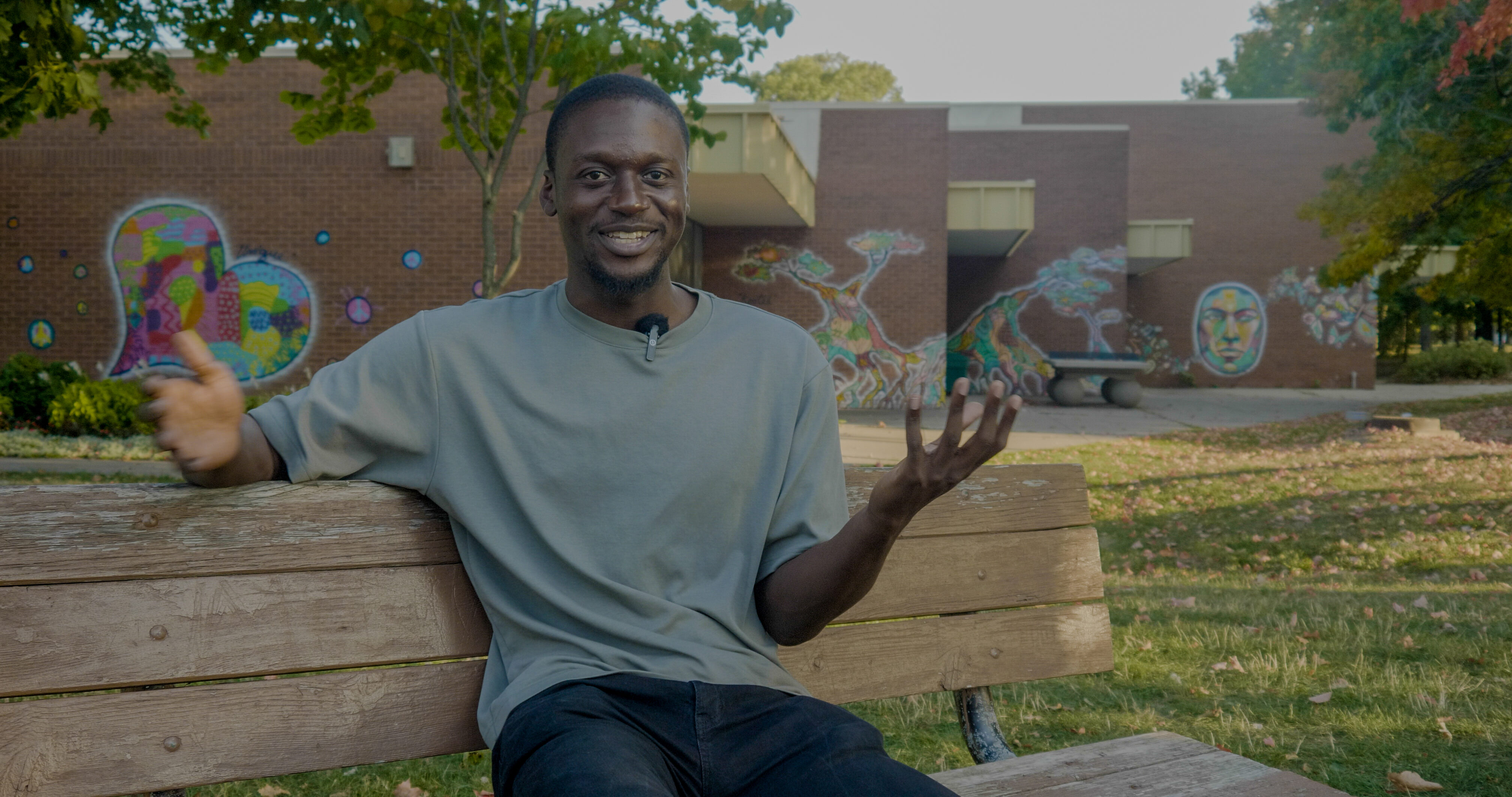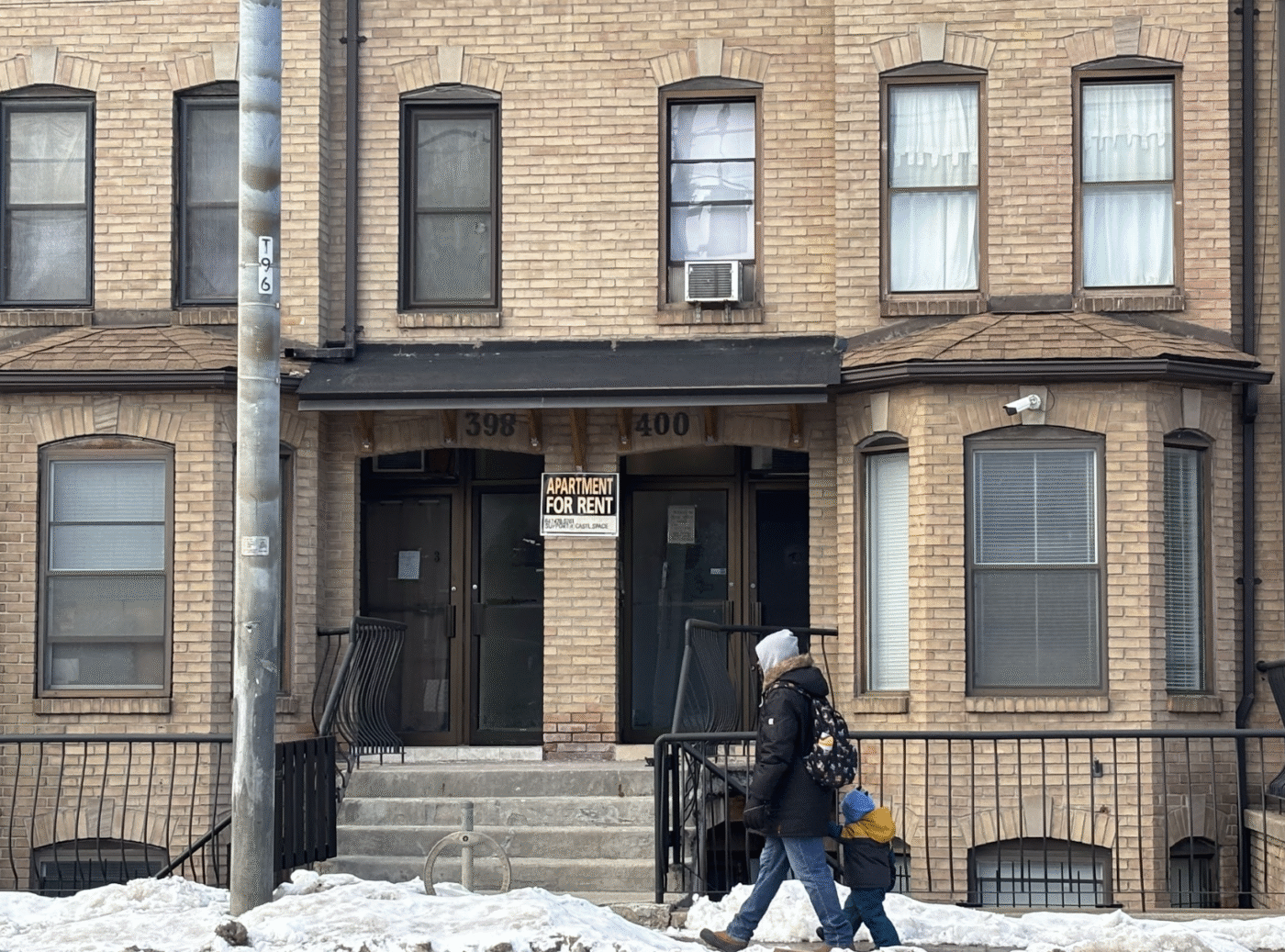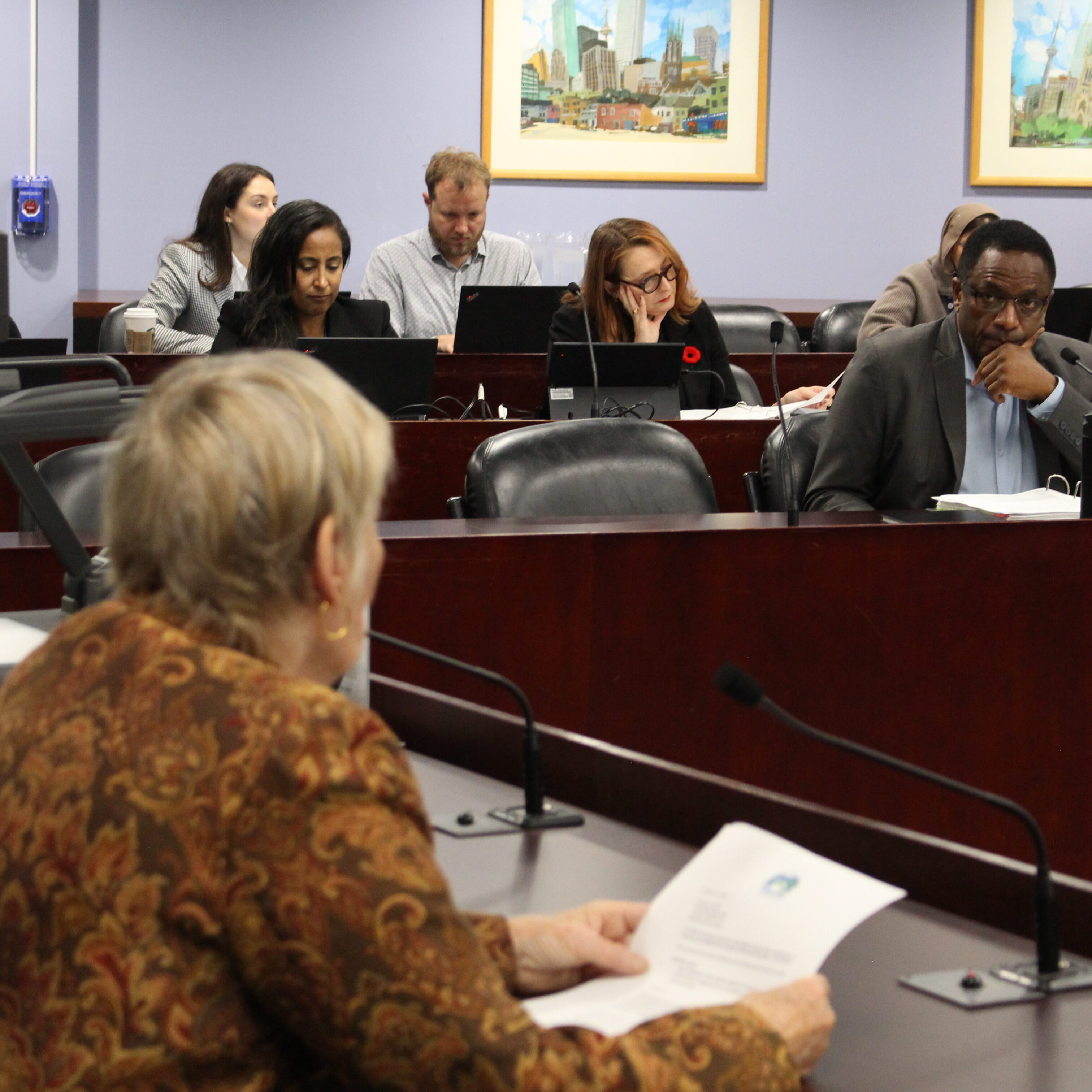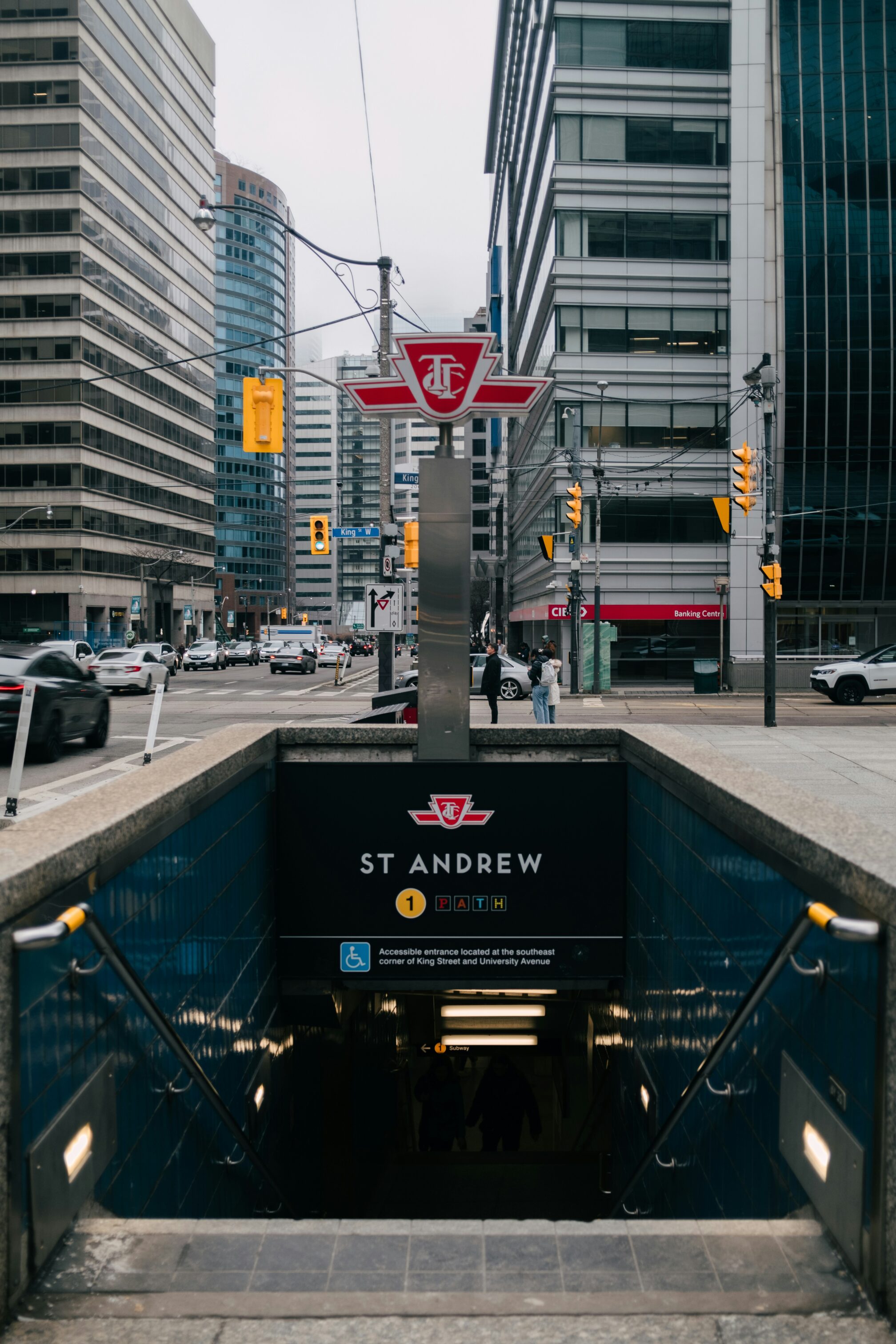THE GREEN LINE AND
TECH FOR GOOD CANADA’S GUIDE TO...
CLIMATE ACTION
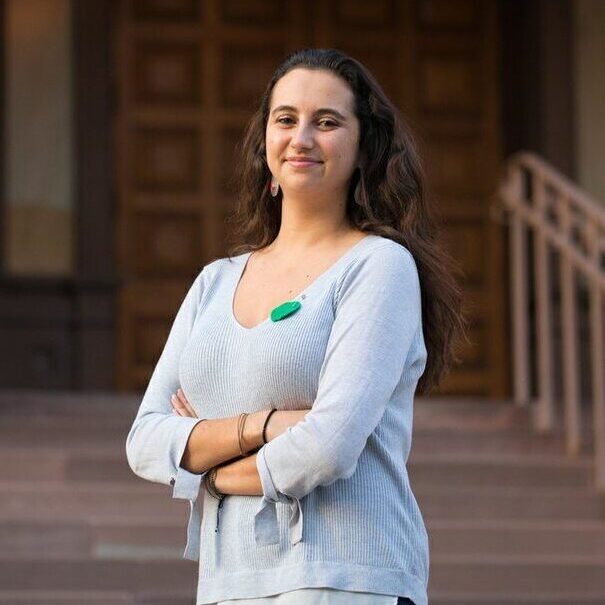
📸: Provided by Allie Rougeot.
WITH ALIÉNOR (ALLIE) ROUGEOT

Charlotte Desousa
Centennial College journalism grad passionate about the arts and Indigenous issues.
November 1, 2021
DEFINING
THE PROBLEM
If we fail to limit the planet’s warming to 1.5 degrees Celsius, climate change-induced risks to North American cities — Toronto included — will “intensify rapidly,” leading to more hunger, drought and conflict, according to a February 2022 United Nations report.
Because climate change is the defining issue of the 21st century, The Green Line, in partnership with Tech for Good Canada, interviewed activist Aliénor (Allie) Rougeot about why she became interested in the climate justice movement and how other Torontonians can join, too.
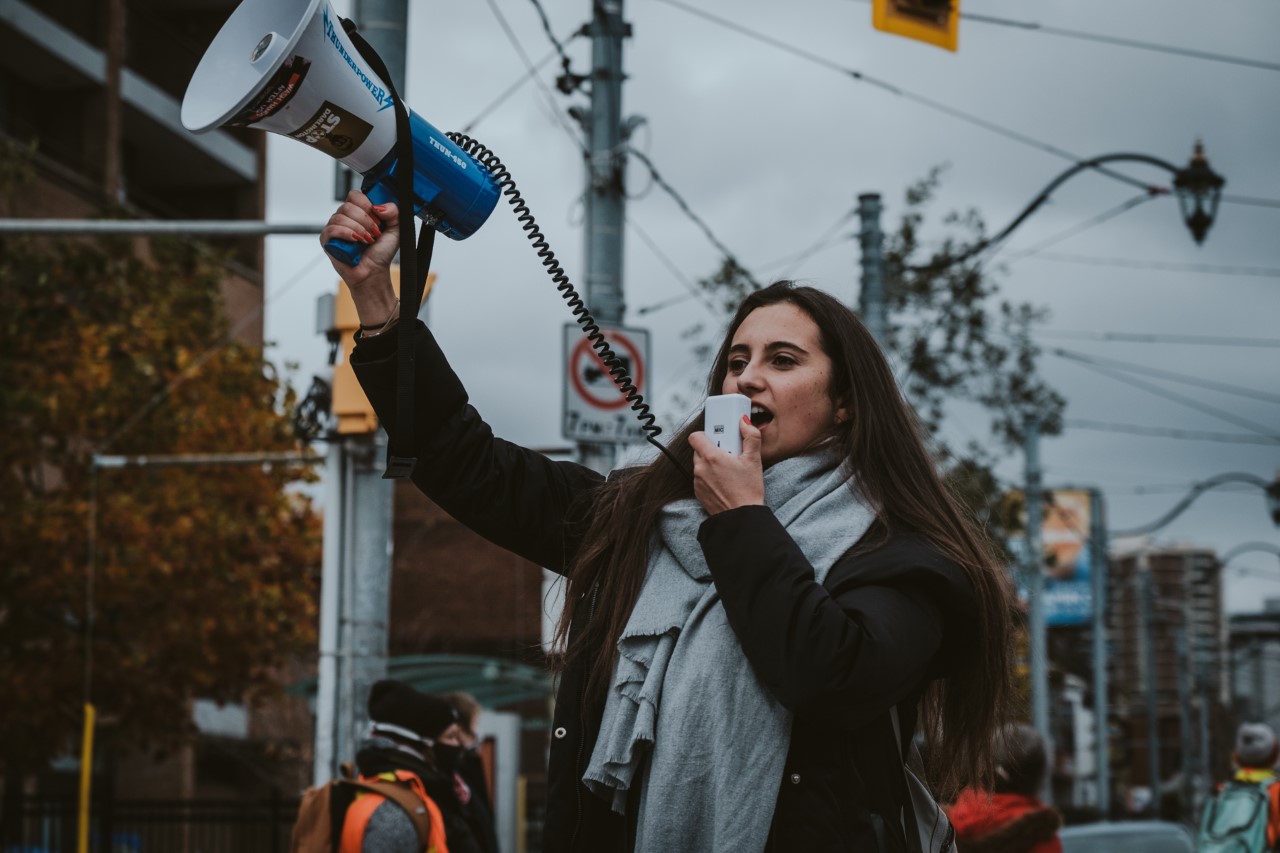
📸: Joshua Best.
MEET
ALLIE
Rougeot, 22, is a climate activist and the lead coordinator of Fridays for Future Toronto, the local chapter of the global initiative started by Greta Thunberg. In 2019, Rougeot helped mobilize more than 50,000 people to march for climate action. That same year, Corporate Knights named her a top 30 under 30 sustainability leader and Toronto Life recognized her as one of the 50 most influential Torontonians.
As a kid, Rougeot was passionate about women’s rights, refugee rights and biodiversity loss. When she was 10, she started participating in climate action by educating her classmates about the role of coral reefs in the ecosystem. The importance of climate activism was later cemented for Rougeot when she joined the refugee rights movement.
“I learned there would be a lot more displaced peoples and forced migration because of climate change,” she says. “To me, [climate activism] became an opportunity to solve a future problem in advance.”
Rougeot first got involved by joining university campus movements, asking for divestments, advocating for more sustainable practices and raising awareness. Because she felt that systemic change was needed at all levels of government — and not just within her university — Rougeot turned her attention to school strikes.
WHAT'S
AT STAKE
Rougeot often jokes that she’s not an environmentalist or a nature person. For her, climate action is a people-centric movement because the climate crisis will affect human beings. She fears daily life will be disrupted because our homes will be affected by extreme weather events, making it more difficult to access electricity, for example. Our health will also suffer due to disruptions to food systems and the rampant spread of illnesses and diseases, Rougeot explains.
Indigenous communities, racialized communities, low-income families, and people experiencing homelessness will be most affected by climate change in Canada because it will be more difficult to access good food and health services. These same communities are disproportionately affected by Toronto’s housing crisis, which means they’ll be even more vulnerable in a climate crisis context, Rougeot explains.
"IF YOU HAD TO CHOOSE [BETWEEN ACTIONS], THINK OF THE SYSTEMIC-FOCUSED ONE FIRST."
ALLIE ROUGEOT
22, TORONTO
ACTIONS
BEYOND RECYCLING
Rougeot says she’s focused on advocating for systemic change. For example, if she only had one hour to care about the climate, she’d rather spend it calling her member of parliament than sorting the recycling. However, Rougeot encourages doing both if you can, though she acknowledges that not everyone has the time. “If you had to choose [between actions], think of the systemic-focused one first,” she explains.
Because Rougeot has a lot of time to invest in the climate justice movement, she adapted her lifestyle habits. Rougeot phased out fast fashion from her wardrobe, changed her diet, and became more mindful of the transportation she takes and how she gets around in the city.
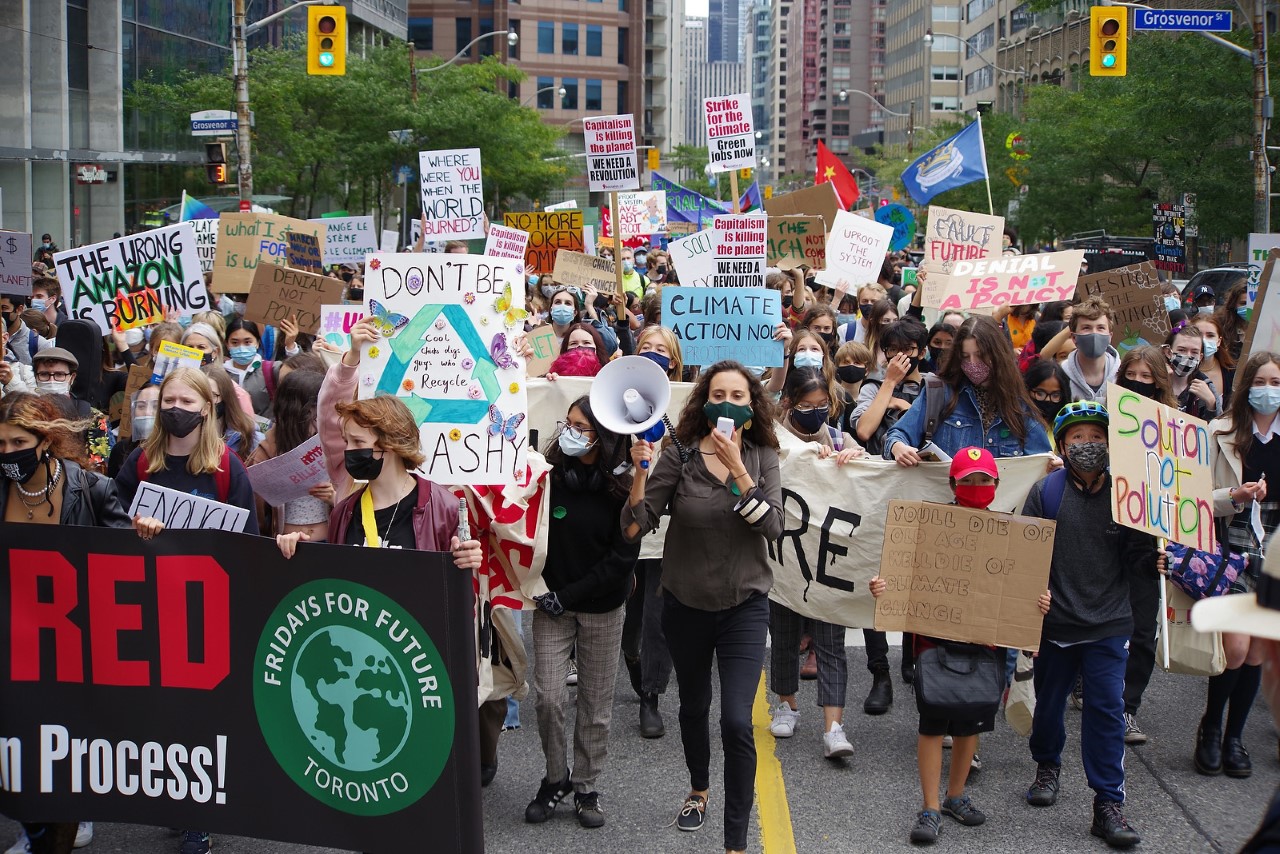

CLIMATE JUSTICE
THROUGH AN INDIGENOUS LENS
Rougeot emphasized lending support to Indigenous communities through climate action when these groups are fighting for their rights or calling for sovereignty. She says relationships with these communities can be seen in Fridays for Future Toronto’s organizing efforts, such as when the group includes Indigenous sovereignty in its demands. But Rougeot adds that Fridays for Future Toronto members are careful not to appropriate specific language used by Indigenous communities because without the knowledge to back it up, doing so would feel performative. Considering that Fridays for Future Toronto has time and expertise in mobilization, Rougeot says its goal is to stand behind these communities. “The focus is mostly on showing up,” she explains.
"WE HAVE AN EXCEPTIONAL ROLE WITHIN CANADA BECAUSE WE'RE SO CLOSE TO POWER."
ALLIE ROUGEOT
22, TORONTO
HOW YOUNG
TORONTONIANS CAN HELP
Toronto is at the centre of a lot of political, business and financial decisions, according to Rougeot. She says many major conferences for different industries take place in the city. For example, banks that invest in fossil fuels are often headquartered here, while government bodies such as the Legislative Assembly of Ontario and the City of Toronto are based downtown.
So, when Torontonians block a street, mobilize, put up posters or create art, they’ll have an impact because they’re close to decision-makers and gatekeepers. That’s why Rougeot believes any meaningful action can contribute to fighting climate change.
“We have an exceptional role within Canada because we’re so close to power,” Rougeot says. “We have that access to power that a lot of cities don’t have.”
And in
conclusion
Rougeot admits that it’s difficult to think about the future beyond the next five years. For her, the state of the climate crisis completely influences how she thinks about long-term things, like her career or even starting a family. “I still can’t imagine bringing a child into this world with the current state of things,” she explains.
For the movement to be a success, Rougeot says it’s essential that we tackle systemic barriers to climate action, while keeping our most vulnerable communities in mind. From mobilizing on the streets to calling your local representatives and changing your daily habits, there are many ways for young Torontonians to fight climate change.
"I STILL CAN'T IMAGINE BRINGING A CHILD INTO THIS WORLD WITH THE CURRENT STATE OF THINGS."
ALLIE ROUGEOT
22, TORONTO
Next Steps and
Resources
Actions
Next steps for people who want to take action,
but don’t know where to start.
Educate
Yourself
Learning about the impact that the climate crisis can have on you and your loved ones forms a base for action. Understanding which communities or individuals are most at risk will help you undertake climate action in an equitable way.
Look
Around
Taking action in your community is a good place to start. Schools have environmental clubs and neighbourhood groups host clean-up days. As an individual, you can also make lifestyle changes, like driving less during your commutes or eating more sustainably.
Mobilize
Systemic change starts with the decision-makers. Mobilizing and organizing other people to join peaceful protests or to contact their local representatives are both powerful ways to effect change.
Join Our
Community
Gather with other like-minded Green Line community members to take action on climate justice.
Resources
Community-curated resources
to help you take action.
